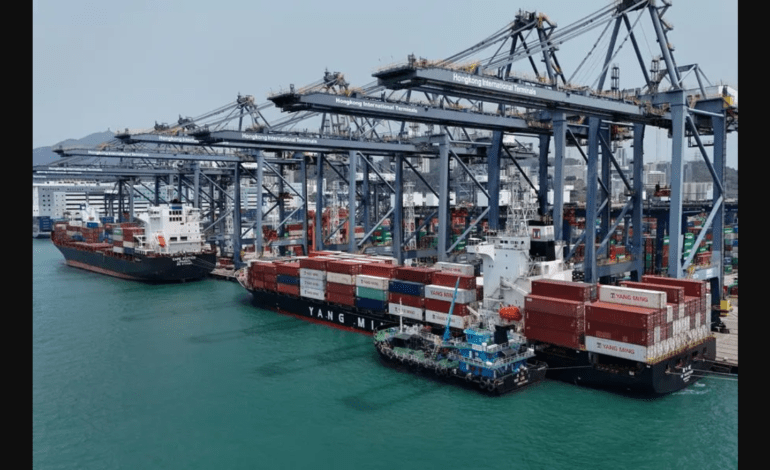
Largest port in US sounds alarm on Trump’s tariffs
The Port of Los Angeles, the largest in the United States, is bracing for a potential 10 per cent decline in cargo volume later this year due to sweeping new tariffs announced by former President Donald Trump, according to Executive Director Gene Seroka.
In an interview with Politico, Seroka expressed concern over the new levies, which target essential imports from key trade partners. “We need lumber from Canada; appliances from Mexico; aluminium, steel, copper and furniture from China,” he said. “All of those commodities and more were hit with the highest tax we’ve ever seen in yesterday’s announcement.”
Seroka warned that the resulting slowdown would significantly impact the Los Angeles economy. “The drop, I think, is going to be at least 10 per cent at the nation’s largest port here in Los Angeles.”
Trump’s tariff plan, announced Wednesday, imposes a 10 per cent baseline duty on all imports starting April 5. Higher, individualised tariffs targeting countries with large trade surpluses with the US—such as China (54%), South Korea (25%), and Japan (24%)—will take effect on April 9.
The new China tariff includes a 34 per cent duty on top of an earlier 20 per cent levy related to fentanyl trade concerns, bringing the total to a punishing 54 per cent.
Following the announcement, ports in Los Angeles and Long Beach experienced a surge in shipments as importers rushed to beat the tariff deadline. That spike is expected to taper off sharply, with fewer goods arriving and affordability declining.
Industry experts warn the slowdown could ripple through the broader Southern California economy. The trade, transportation, and utilities sector employs around 830,000 workers in LA County, according to the Los Angeles County Economic Development Corporation.
“There will be fewer employment opportunities at the ports and throughout the supply chain,” said economist Jock O’Connell of Beacon Economics. “It will stretch deep into the Inland Empire, where containers are processed daily.”
Seroka echoed those concerns: “You’ll see folks that have to scramble pretty quickly to keep their jobs and keep food on the table. It’s going to be disruptive.”